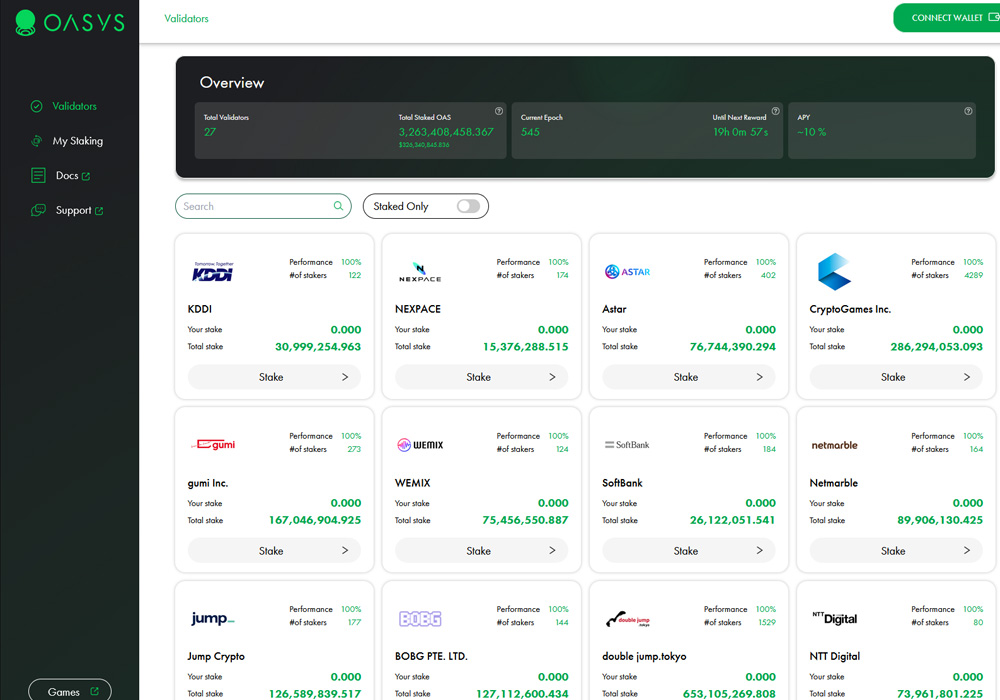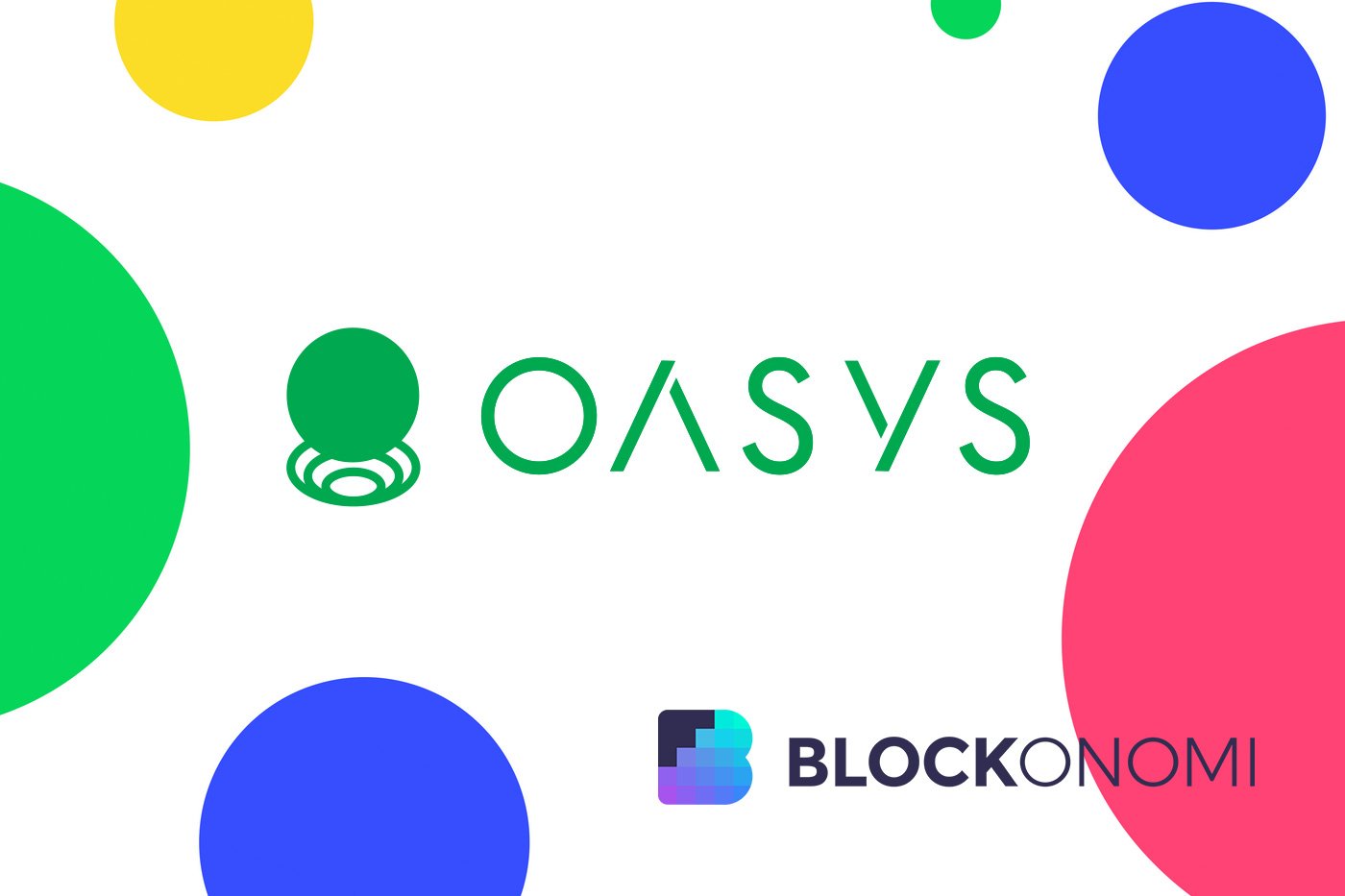Oasys is a revolutionary decentralized blockchain video gaming platform aiming to change the gaming industry by giving players and creators more power.
With its two-layer design, Oasys solves the hardest problems blockchain game makers face and raises the bar for blockchain gaming around the world.
From its partnerships with big game and Web3 companies, and its real benefits to those who use it, we look at how Oasys is changing the gaming world.
Quick Verdict: Oasys is a revolutionary decentralized blockchain gaming platform that utilizes a unique two-layer architecture to empower players and creators while solving major challenges in the blockchain gaming industry.
Quick Facts
| Key Aspects | Description |
|---|---|
| Decentralized blockchain video gaming platform | Oasys aims to empower players and creators in the gaming industry |
| Two-layer design | Solves major blockchain gaming challenges and sets a new standard |
| Technical Architecture | Consists of Layer 1 (Hub Layer) and Layer 2 (Verse Layer) |
| Hub Layer | Manages digital assets, bridge data, and rollups; focuses on security and speed |
| Verse Layer | Enables high-performance games using optimistic rollups; EVM-compatible |
| Staking | Open validator selection process; requires staking OAS tokens |
| Smart Contracts | Carefully implemented; only approved contracts are executed |
| Builders First | Verse owners pay gas fees instead of users, creating a sustainable environment |
| Permissioned Layer 2 | Focuses on security and prevents scams in gaming environments |
| Evolution and Milestones | Started in February 2022; raised $20M through private coin sale |
| Multi-token scheme | Allows for flexibility and scalability across multiple games and applications |
| Partnerships | Backed by major gaming companies like Sega, Ubisoft, and Bandai Namco |
| Ecosystem fund | Supports the growth of autonomous gaming apps and early-stage projects |
| Leadership team | Experienced individuals guiding Oasys’ strategic direction and operations |
| Competitive advantage | Two-layer approach sets Oasys apart from competitors like Polygon |
Technical Architecture
There are two stages to the process of creating technology at Oasys. Its primary objectives are managing digital assets such as fungible (FT) and non-fungible tokens (NFT) smoothly and achieving fast growth.
The Oasys Layer 1 is the Hub Layer public blockchain, which is compatible with EVm.
It is powered by an optimized version of geth designed to be compatible with Oasys. The Proof of Stake (PoS) consensus mechanism is used to verify transactions. Compared to Proof of Work methods, this ensures the blockchain’s security and stability while being less harmful to the environment.
Data access and security are responsibilities of the Hub Layer, making it crucial. However, the Verse Layer is responsible for managing applications.
The network can function more quickly and adjust easily since issues are isolated. Among the primary functions of the Hub Layer are the management of digital assets, the processing of bridge information, and the consolidation of transactions into “rollups.”

More Power To Devs!
Don’t forget that running programs isn’t its primary function. The Hub Layer can concentrate on safety and speed as the Verse Layer handles much of that.
Every fifteen seconds, the Hub Layer creates a block to guarantee constant data transmission between nodes all over the globe. Network slowdowns may be caused by blocks that are too short of timestamps. This design decision prevents them from having an excessively low stature.
Also, it does its best to maintain a constant gas price so that sales don’t occur for no apparent reason. It aims to attain the lowest possible price based on the current gas price.
With an open technique for Hub Layer user validation, many individuals may contribute to keeping the network secure and operational. Becoming a validator requires staking a large number of OAS tokens. In exchange for maintaining a secure network, these individuals get rewarded for staking. This transparent approach encourages individuals to become part of the Oasys organization and put their money into it.

Implementing smart contracts requires caution on the part of the Hub Layer. This layer does not make adding additional smart contracts easier. Rather, the Oasys office only approves contracts before they are executed. Execution of contracts pertaining to asset management, money rolling, and bridge running are included. This further strengthens and stabilizes the layer.
The Verse Layer
The Verse Layer is a Layer 2 system that makes high-performance games possible. This layer uses confident rollups, a technology choice that fits with the platform’s focus on speed, scale, and developer ease of use. It is important to use optimistic rollups to get high speed and low transaction costs. This makes the Verse Layer a great place to put game logic and engaging dApps that need to handle transactions quickly and cheaply.
The Verse Layer works with the Ethereum Virtual Machine (EVM), which makes it easy for developers to move from the Ethereum environment to Oasys. This flexibility makes it possible to move contracts without any changes and use common development tools like Truffle and web3.js.
This ensures devs have as little trouble as possible when building on Oasys. This smart choice brings in more developers and speeds up the platform’s adoption and deployment of autonomous apps.
The Verse Layer adds new technology features and a new way of running things. Instead of users paying for deals, the Verse owners pay them gas fees.
Builders First
Verse Builders must offer OAS tokens for this model to work. This creates a sustainable environment where users can connect with apps without worrying about transaction fees. This method improves users’ experience and gets more people on the network to participate and be involved.
The Verse Layer is also set up to work as a Permissioned Layer 2 in most situations, focusing on security and preventing scams. This is an important design factor for keeping the environment safe and trustworthy, especially in game settings where real money can be traded and digital goods are often traded.
This layer’s permissioned nature makes it easier to manage node activities, smart contract activation, and transaction processing, making the platform even more reliable and efficient.
Evolution and Milestones
When Oasys started in February 2022, it aimed to change how blockchain games were played by putting players and producers first and using a decentralized platform to make play-and-earn more popular. To raise $20 million through a private coin sale, Oasys set out to solve the unique problems in the game blockchain scene. They had a clear plan for how to get there and were set on making blockchain games the rule all over the world.
The round of funding was led by Republic Capital, and Jump Crypto, Crypto.com, Huobi, Kucoin, Gate.io, Bitbank, and Mirana Ventures all gave money. The goal was to help the platform grow without giving up project control.
A big part of Oasys’ plan is its new two-layer system. The Verse Layer makes it easy to build dApps quickly and on a large scale, while the Hub Layer ensures the network is safe and can grow. This ensures that transfers happen quickly and with low gas fees, which solves a common problem in blockchain games.
Along with designing technology, Oasys set up an environment fund to help autonomous game apps and projects in their early stages grow. This shows that the company wants to make a full game experience even more.
Oasys changed in 2023 when it released a new logo that showed it wanted more people to play blockchain games. Its new name and image helped it reach its goal of appealing to more fans worldwide. Oasys is serious about becoming a blockchain for games, as shown by its new look and brand. Sega, Ubisoft, and Bandai Namco are all behind the company.
Conclusion
Gabby Dizon, Hajime Nakatani, Hironobu Ueno, Hironao Kunimitsu, and Shuji Utsumi are on the Oasys team. They helped start the company. The group is led by Ryo Matsubara. Their backgrounds greatly affect Oasys’ strategic direction and operational success.
A multi-token scheme is different from the usual single-token method used by Oasys. Since the setting is structured this way, it can be changed and expanded to work with many games and apps. OAS tokens pay gas fees, taxes, and bills for people in the Oasys society.
To mark big wins, the platform held events, held a secret sale to raise $20M, and opened its mainnet. Oasys wants to become a star in blockchain gaming by making big games and useful tools for the community.
The two-layer method of Oasys makes it stand out from rivals like Polygon. This method ensures speed, growth, and a good setting for coders. Because of how it’s made, Oasys is taking the sector by storm as it emerges as a strong player in the market for blockchain games.





